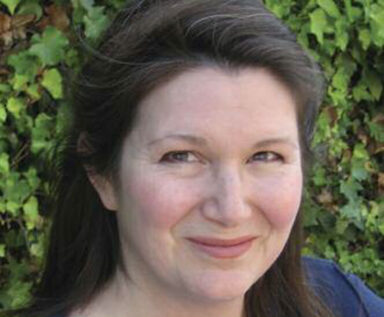Depression: A Patient’s Perspective
Deborah Gray lived with undiagnosed clinical depression until age 27. Today, the busy wife, mother and writer is proof there is a light at the end of the tunnel for those suffering from MDD.
- By Trudie Mitschang

AN ESTIMATED ONE in 10 adults suffers from major depressive disorder (MDD). There are various theories as to the cause of depression, including biological, psychological, social and spiritual explanations, although at least some genetic predisposition is likely in the majority of patients. There are also some common catalysts that seem to precede the onset of MDD, including loss, stress, isolation and trauma. For Deborah Gray, who has struggled with this debilitating illness since childhood, an incident that occurred when she was still a toddler stands out as the likely catalyst into what has become a lifelong battle. “My parents divorced when I was 2, and I essentially lost my father,” she recalls. “I don’t know if I would have suffered from depression without that early loss; I do know that the only picture of me as a child that shows me laughing was taken before my father left. Every picture taken afterward shows a solemn child who smiles only diffidently.”
Diagnosis: A Long and Winding Road
A painfully shy child who sought refuge in reading, Deborah withdrew further as a teen. In college, her depression worsened, and she found herself lagging socially and academically. In desperation, she visited a walk-in clinic of a local hospital and came away with a diagnosis of PMS and a mandate to begin journaling. Discouraged, Deborah graduated weeks later with no diagnosis and minimal hope for the future. “After graduation, I found a job, but I was barely making it through the workday. I would do only what was absolutely necessary —there was no joy, motivation or sense of accomplishment. Though I wasn’t suicidal, I couldn’t imagine life five years down the road,” says Deborah.
A turning point came when Deborah was 27; after reading the book Darkness Visible by William Styron, she says she realized the author perfectly described what she’d been experiencing for two decades. “He articulated beautifully all of the feelings of loneliness and despair I’d been fighting for the past 20 years,” she explains.
Deborah made an appointment with the head of psychiatry at a nearby hospital, where she was finally diagnosed with depression and prescribed a treatment plan that included a regimen of talk therapy and antidepressants. Initially, Deborah declined the medication, wary of side effects, but later reconsidered when talk therapy alone failed to work. “Six months after my diagnosis, I began taking Norpramin. In six weeks, I experienced a complete one-eighty,” says Deborah. “Small things that used to require all my energy, like taking a walk, became effortless, and I could express. my emotions in therapy.”
Deborah remained on Norpramin for the next 10 years, until she learned she was pregnant in 2002 and was advised to wean herself off her medication. “I was shocked when I didn’t experience any depression during my pregnancy, and as soon as I gave birth to my son, Lawrence, I began taking Wellbutrin to avoid any bouts of postpartum depression.”
Breaking the Silence
Today, with the help of medication and weekly therapist visits, Deborah says the majority of her days are good ones. The stigma of depression had left her suffering in silence for years, and she was compelled to help others who might be suffering in silence, too. Deborah started a popular and well-respected depression website, Wing of Madness, to help educate, support and advocate for those dealing with MDD. “I am still dealing with depression and probably will be for the rest of my life,” she says. “Sometimes it’s still a struggle to find the motivation to do household chores, like making a simple set of curtains for our kitchen. The difference is now I use my support system of doctors, family and friends to keep me healthy.”